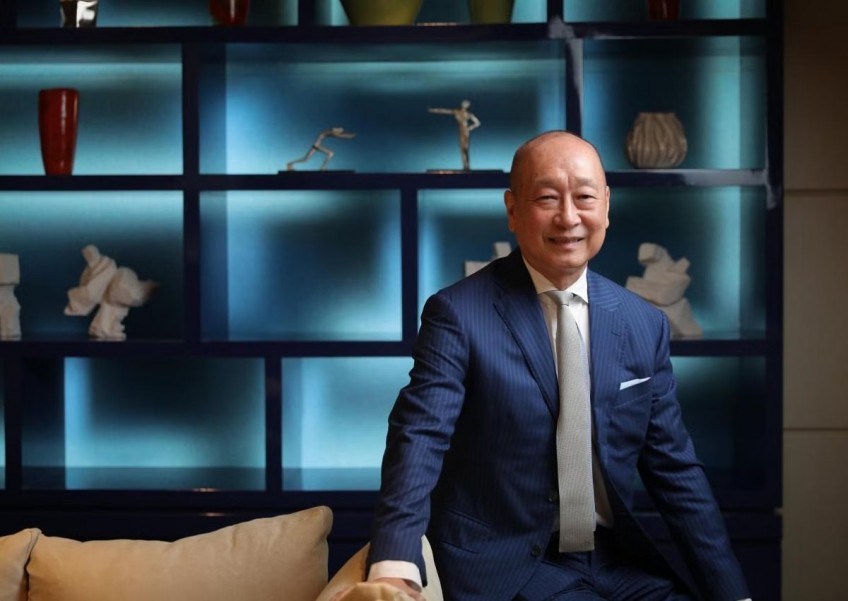UOB chief Wee Ee Cheong's 2023 salary rises to $15.9m, overtaking DBS CEO's pay


SINGAPORE – UOB chief executive officer Wee Ee Cheong’s salary rose as the bank’s full-year core earnings hit a new record in 2023, but his pay increased at a slower pace.
Mr Wee’s annual pay for the year came in at $15.9 million, a 12 per cent increase from the $14.2 million he earned in 2022, said Singapore’s third-largest bank in its annual report on March 21.
His annual remuneration comprises a base salary of $1.2 million, unchanged from 2022, as well as a bonus of $14.7 million, and benefits-in-kind and other transport-related benefits amounting to $39,700.
The report showed that 60 per cent of Mr Wee’s variable pay is deferred, and will vest over the next three years. Of the deferred variable pay, 40 per cent will be issued in deferred cash, while the remaining 60 per cent will be in the form of share-linked units.
The increase was smaller than the 30 per cent salary jump he had in 2022, when his pay of $14.2 million rose from $10.9 million the previous year.
Mr Wee’s pay overtakes that of Mr Piyush Gupta, CEO of Singapore’s largest bank DBS.
Mr Gupta was paid $11.2 million in 2023, a drop of 27 per cent from the $15.4 million he brought home in 2022, DBS said on March 6.
[[nid:674013]]
The 2023 variable compensation for the DBS CEO and other members of the group management committee was cut to hold them accountable for a series of digital disruptions in 2023.
At UOB, full-year core earnings grew 26 per cent to $6.1 billion because of strong income growth and a bigger customer franchise. This marked the first time its profits crossed the $6 billion mark.
These earnings excluded one-off expenses from the integration of Citigroup’s consumer banking business in four South-east Asian markets.
Including these expenses, net profit for the full year rose 25 per cent to $5.7 billion. Costs related to the integration are expected to largely taper off by mid-2024.
Mr Wee said in his bank’s annual report that the global economy faced uncertainties and challenges in 2023, with economic activity moderating on the back of slower demand in Europe and China.
“Looking ahead, uncertainties about US inflation and China’s growth will continue to linger while geopolitical tensions and political transitions could lead to another bumpy year globally,” he said.
“Growth in the Asean region is expected to remain strong due to domestic demand, moderating inflation and increased trade and investment flows,” Mr Wee said, adding that the bank is well-placed to ride on the region’s growth.
ALSO READ: UOB hands out one-off extra month of bonus to junior staff
This article was first published in The Straits Times. Permission required for reproduction.